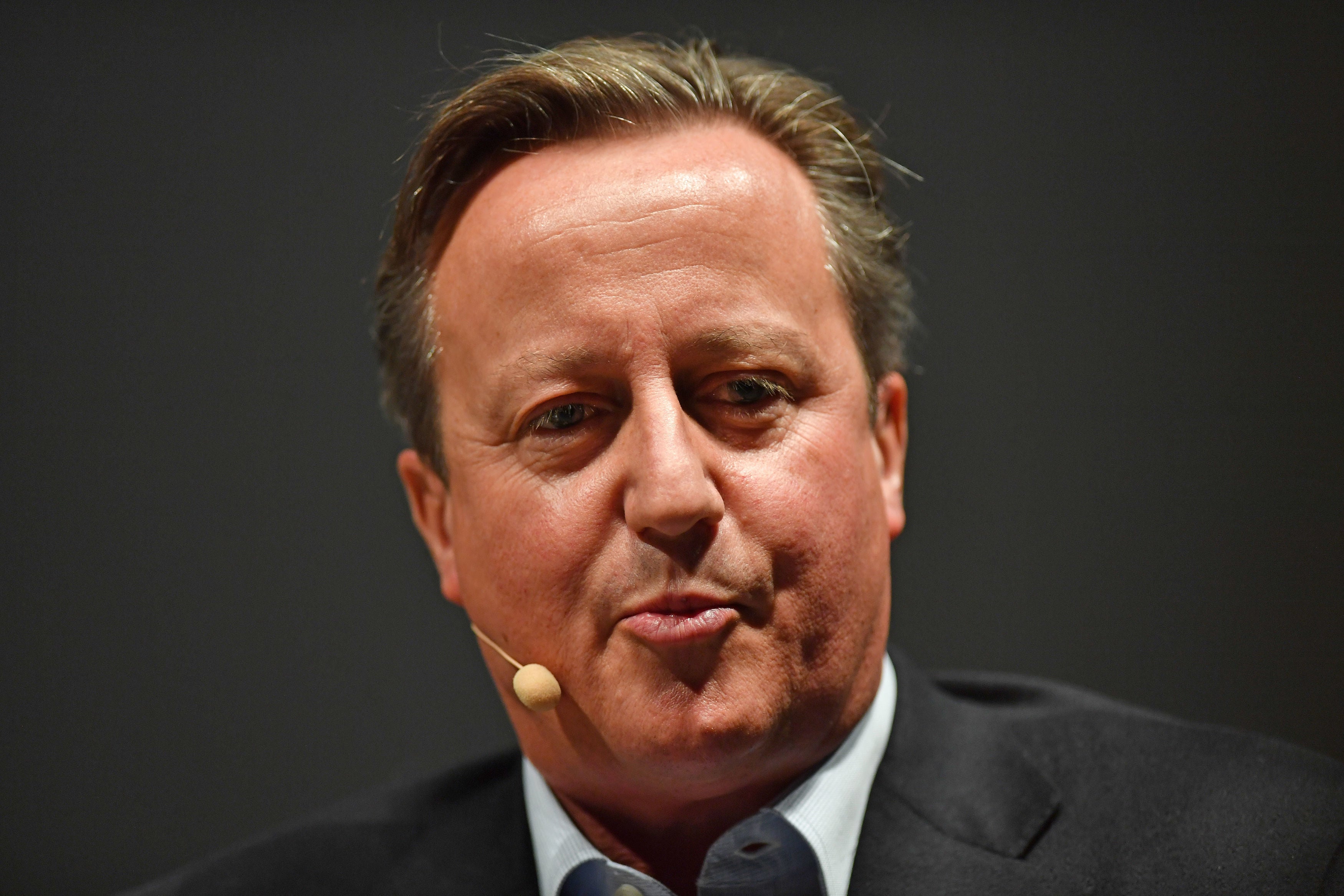Cameron-Greensill lobbying scandal highlights need for new rules
While it’s a tacky affair, if it acts as a catalyst for change some good will have come of it. Just don’t hold your breath, writes James Moore


Belatedly, David Cameron may have done his country a service. The scandal that’s blown up over the former prime minister’s work for collapsed lender Greensill has thrown a deserved spotlight on the subject of lobbying, and its oversight.
It has also once again raised questions about the revolving door between the public and private sectors and what this means for the way lucrative contracts are handed out.
“He wasn’t very successful though was he,” a senior lobbyist of my acquaintance said when I asked for their take.
And no, Cameron’s texts to the chancellor, Rishi Sunak, along with a couple of junior ministers and senior officials, didn’t get Greensill a piece of the Covid loan scheme – in this case, the Bank of England’s Covid Corporate Financing Facility – that it was after because it didn’t meet the required criteria.
On the other hand, it had an awful lot of clout within government and later secured accreditation for the Coronavirus Large Business Interruption Loan Scheme. Some you win, some you lose.
After a month-long silence, Cameron finally said he felt lessons could be learned and “communications with government need to be done through only the most formal of channels, so there can be no room for misinterpretation”.
“Misinterpretation” is an interesting word to use there. As a shareholder, he stood to do very well out of Greensill, had it succeeded prior to its collapse. So he dug into his contacts book and asked his old pals to him a solid. It’s a fairly tawdry way for a former PM to carry on. Or am I misinterpreting these events?
Where Cameron has perhaps done the nation a belated solid is in drawing attention to the issue. As my contact pointed out: “Would anyone have noticed if it wasn’t Cameron involved?”
They probably wouldn’t. It may well have passed the public by, just as a whole lot of sleazy looking things that have been going on in government have passed the public by.
I’m thinking here about the dubious way Covid contracts have been awarded to politically connected companies, or the way “levelling up” funds have been showered upon key marginals and sometimes seats occupied by cabinet ministers.
The stench of sleaze from those affairs hasn’t permeated much beyond the Westminster village.
A former PM debasing himself by texting his old colleagues to push for a company that subsequently collapsed with scandal trailing in its wake? That’s created enough of a stink to do the job.
The current prime minister, Boris Johnson, who continues to resist an inquiry over the government’s handling of the pandemic, has ordered an independent one into this affair.
Ask yourself why. It might well be because No 10 feels the current administration should emerge relatively unscathed at least by comparison to the bloke in charge of a previous government. Maybe there will be recommendations for rule changes about lobbying along the way.
Those are clearly overdue, and while the government could always try kicking them into the long grass, there are influential MPs who could yet keep them in the spotlight.
Sir Bernard Jenkin, who led an inquiry into links between government and business, is one who has raised concerns about the way in which people in the public sector cultivate those in business and then subsequently benefit because it reinforces the perception among voters that politicians are all in it for the themselves.
There is nothing wrong with lobbying per se. Sometimes it can be beneficial, through helping highlight problems with legislation, say, which is something the third sector does as well as the corporate one.
But the rules that exist surrounding it, and the way the public and private sectors interact, are woefully inadequate and have gaping holes. This affair clearly shows that. If it ultimately causes some of the gaps to be filled, that would be a welcome result. However, I’m not sure I’d hold my breath. It’s not as if we haven’t been here before.
Join our commenting forum
Join thought-provoking conversations, follow other Independent readers and see their replies
Comments